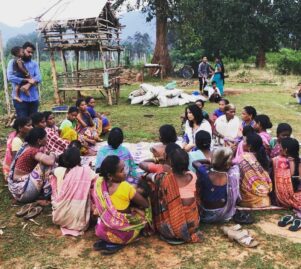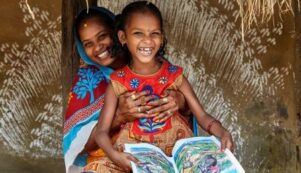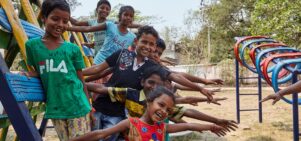A school-going child during his important phase of physical and mental growth spends around 70% of his time with family. Hence, parenting as a crucial game-changer in a child’s overall development can’t be overlooked. In the Indian context, the role of parents in childhood development across the social classes has always been culturally dominant. Too much authoritative dealing with the child as a parent often creates a sheer communication void for the child to express his emotions and feelings transparently. Fear, anxiety, and insecurity cover the mental state, thereby leading to alleviating the excitement for participating openly in any activities of life at the foundational stage.
For people living in a city within a more competitive environment, I often see parents planning their child to have a structured life routine to crack various life competitions from a very early level. Childhood with less freedom to explore the around, more pressure to reach benchmarks, and no opportunity to sense the uncertainty somewhat keeps them aloof of the flavor of the truth of life. Within such frames, the development of the child is observed to be more moulded to a purpose and less flexible to any deviation in demand.

Even for people living in rural areas, I have observed few educated parents be somewhat ambitious, where others hardly think about it. In the former case, the parents due to not having many options around believe the traditional benchmarks (how they were exposed to education during their childhood) as the frame to mould, even if it’s far outdated and seriously affects the physical and mental growth of the child. Ironically, for most, the benchmark of a good education is sitting with textbooks for long hours and delivers in mugging up. On the other hand, very few capable parents proudly import patches of the city’s framework to impose upon. In the latter case, I come across a large section of parents being uneducated/not being at home due to work, accidentally becomes an opportunity for the child to take charge of life within its kind of insecurities and thankfully be in a more natural childhood that is less prone to any manipulation. Despite kind of troubles, I have observed these children grow to be flexible, curious, physically swift, self-managing, and relatively more explorative.

Overall, be it city or villages, after close observation of childhood and youth development, I strongly feel the need of parent’s education becoming highly crucial in creating responsible and truly educated next generation. During ground-level involvement, both in elementary and higher education, I have encountered several cases of the child being in a helpless situation due to decisions of parents taken in the past, either from lack of awareness or following the social race. More unfortunate is, the scale of the problem is growing proportionally with complexities in living added to our lives. What further raises the concern is the issue is still perceived as a private affair for the parents to respond to. Truly, there is an imminent need for a shift in thinking and comprehending. On a larger scale, we are talking about the citizens of tomorrow, who, in turn, will decide for the tomorrow ahead. Feeding them with the right kind of thoughts and ability through education in the parent-driven decisions can tactically transform the way we foresee the world ahead.
World-changing at much faster in terms of society and social beliefs, connectivity, and relationships, technology and behavior, lifestyle and livelihood – the need of parents to realize the urgency of exposing the children to meet future realities (good or bad) is very much essential. Otherwise, we may land at serious and unprecedented catastrophes, which due to their qualitative nature are difficult to measure and set an alarm, by the time it makes irreparable damage.

For India, youth being considered as an asset in the future years, childhood should be protected considering the (known and unknown) vulnerabilities of the future, they are being exposed in everyday life. A child being with enormous possibility for the future should not only be considered in human shape to serve the physical workforce. Nurturing mental fitness and social well-being can bring a better society, whose growing absence is already affecting all of us, actively or passively. Thus, the role of parents in child development should be considered and comprehended more aggressively and strategically than ever before. Therefore, parent education/awareness in preparing the child to meet the future world (opportunities and crisis), appears to be a much urgent intervention for different stakeholders.
(Amiya Singh)

